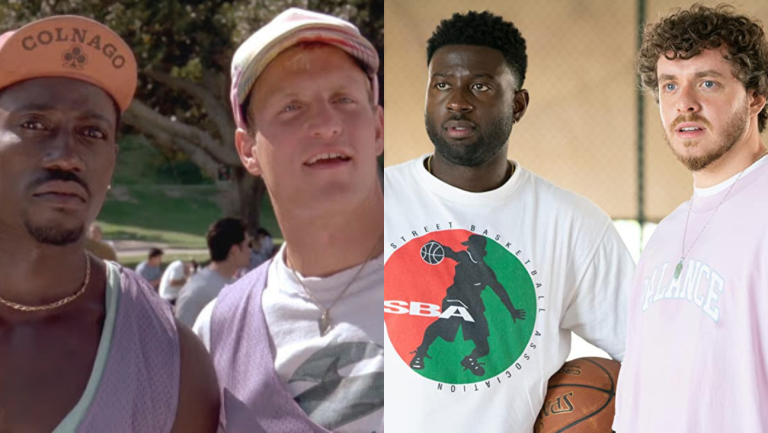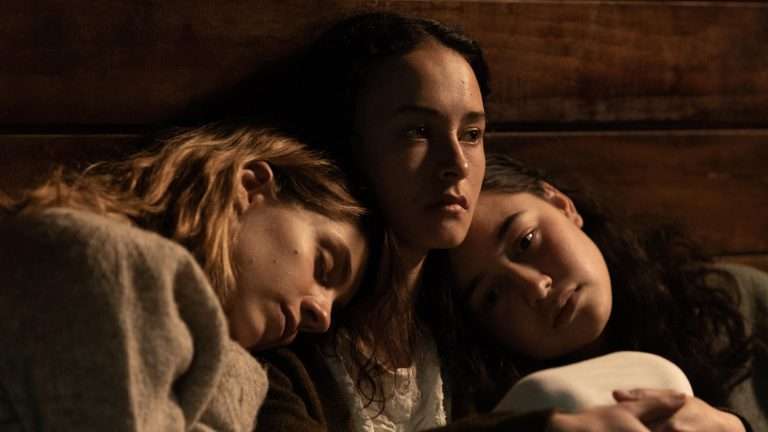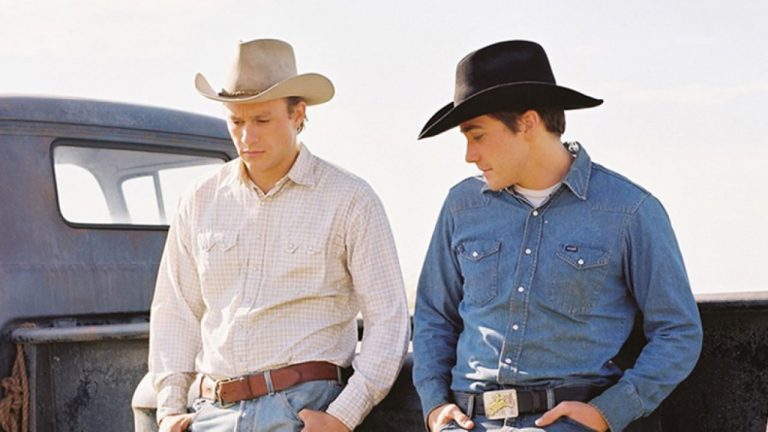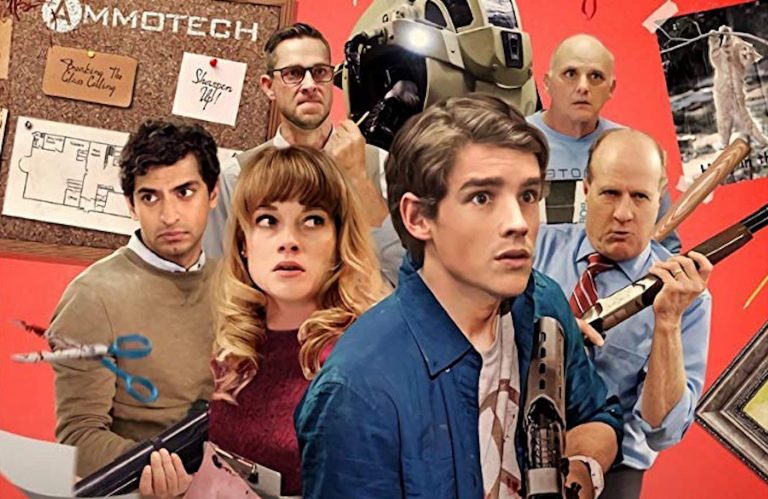Winning Time: The Rise of the Lakers Dynasty (Season 2) Episode 6: It is almost a whiplash in the first 10 minutes, but it also shows the unpredictability of sports and how the winner of one year could lose Game 1 or the first quarter of the game. But what makes this episode of Winning Time one of the first actual great episodes in an already strong season is how the episode takes that emotion of loss and spreads it out as the thematic canopy of the entire episode. It’s the loss of key players; it’s the loss of a marriage in the case of Dr. Jerry Buss; it’s the loss of the 1983 championship to a revengeful Sixers led by Moses Malone and Dr. Julius Erving; and, of course, it’s the loss of Kareem Abdul-Jabbar’s house to a raging fire. Sparse on the details in some instances, sure, and the show won’t ever love the feeling of fast-forwarding through critical moments, but when it chooses to breathe and shine, the performances excel and thrive.
Winning Time: The Rise of the Lakers Dynasty (Season 2) Episode 6 Recap:
Episode 6 – Beat LA
As described in the beginning, the first 10 minutes are celebratory, continuing the streak from the previous episode of a rejuvenated Riley leading the Lakers, led by Magic Johnson, Kareem Abdul-Jabbar, Norm Nixon, and the entire Lakers team to a win against the Philadelphia 76ers, and as Magic Johnson states, “Now it is no fluke.” But as the show returns from the opening theme song, the fate of the Lakers changes as 1983 rolls around, and the team finds themselves against a wounded and angry Philadelphia 76ers. Being bodied by Moses Malone would wound the pride of Kareem Abdul Jabbar, but Johnson’s pass being stolen and taken for a slam dunk—now that is just compounding losses upon losses, both physical and mental. That results in Abdul-Jabbar mentally tuning himself out as he starts thinking of himself physically unable to carry the brunt of the game while Dr. Jerry Buss orders West and Riley to figure it out.
Here’s the thing about Jerry West: The man was one of the most successful GMs in the history of basketball. His silhouette is literally the NBA logo. His choice to draft James Worthy with the No. 1 draft pick or to draft Norm Nixon to the Clippers? Hindsight would, of course, suggest that these are smart choices, especially if you consider they would be getting Nater, “the seven-foot Swedish meat point guard.” But as Winning Time shows, the best sports movies like Moneyball also manage to highlight the humans within the stats of athleticism. As much as drafting Nixon to the poor man’s version of the Lakers (Jerry Buss’s words, not mine) is a smart choice, to draft that man on the day of his birthday—now that is bad timing and also just cold.
And no amount of Jerry West trying to rationalize that being a leader means having to make hard choices could actually decrease the obvious sting that Nixon must have felt. However, as the show very clearly tries to show, Nixon is the winner otherwise because he is in a relationship with Debbie Allen, the future Mrs. Nixon, and as Nixon describes to his wife, the dream of becoming a Laker was such a fresh dopamine high that the fact that he would be left out to dry is a hit on his ego, but as he surmises to Debbie, he now knows who is actually running the team (referring to Magic Johnson). Again, the show is pretty open about its commentary on player empowerment more than coach empowerment, and this is definitively one of those moments.
For dramatic purposes, because obviously, that didn’t happen in reality, watching Debbie and Norm on the dance floor reminds Magic Johnson of his personal life and his on-and-off relationship with Cookie. Thus, he chooses to go to San Diego, where she is trying to sell her designs to exhibitors, and he, being Magic, smoothly introduces himself as Cookie’s boyfriend and sells her to them. Cookie knows that this is going to be a huge leg up, and cynical bastard that I am, it made me think that perhaps that is the reason she chooses to go to dinner with him and even chooses to accept a final chance. This is “Magic” Johnson we are talking about, the man of so many dalliances, the young buck unafraid to get back in the saddle, and the fact that he chooses to ask her hand in a relationship and later on, in marriage, could be construed as delusional, but Isiah as Magic Johnson sells that wide-eyed wonder, optimism, and genuine love he feels for Cookie in that precise moment, thus destroying the cynical wall viewers are bound to have anyway.
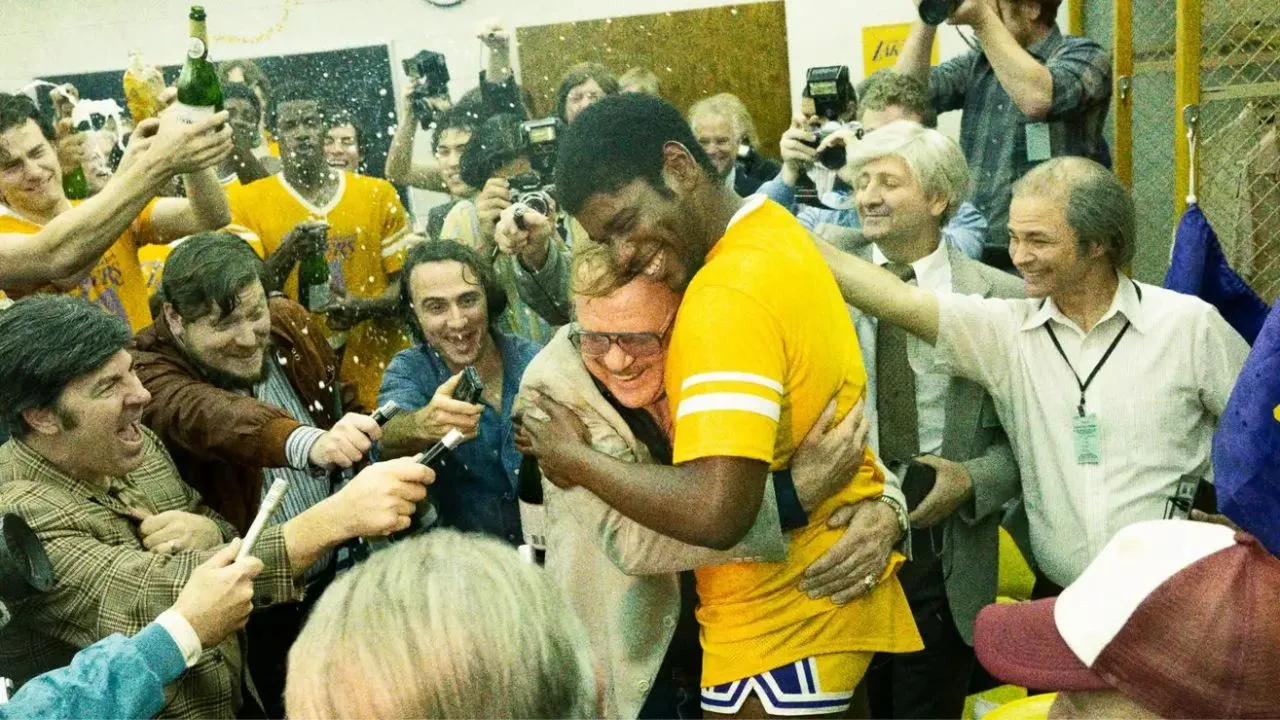
On the opposite end of the love spectrum, Dr. Jerry Buss is having marital problems with his newlywed wife, Honey, whom he is ignoring in favor of the real family, “The Lakers.” From a premise standpoint, you can understand the existence of this plot thread to show where Buss’s priorities lie. However, the issue stems from Honey’s conception itself. As a composite of three different real-life women, the character beats of Honey feel almost like ticking off checkboxes according to how plot threads are supposed to go. He is supposed to be surprised at her partying for the whole night while he is worrying about the Lakers because Buss is nothing if not a hypocrite. But then, the twist comes when Buss, after the Lakers win one of the biggest matches, finds Honey packing her bags. When he asks why she is leaving, both he and the viewers are blindsided to find that Jerry Buss is still married to his ex-wife Joann, and he had somehow forgotten to file the divorce papers, effectively making this marriage with Honey a sham. As she walks away, she reminds him that all he had wanted was a photo of the first woman he had ever loved come to life. I am not going to lie; in a twisted way, it reminded me of a coked-up version of Past Lives.
Winning Time: The Rise of the Lakers Dynasty (Season 2) Episode 6 Ending Explained:
Pat Riley is understandably worried because, as he explains to his wife, speeches and voices of encouragement are useless when players tune them out. Once they are winners, winning too becomes a crutch because they have already climbed that mountain. The question is, what would motivate them to stay there or climb back up?
It turns out that the burning of Kareem Abdul-Jabbar’s house was the inciting incident. While it leads to the destruction of numerous LPs and trophies, his partner and child manage to escape from the blazing inferno. But as he finally returns to the Lakers locker room, he is shocked and surprisingly touched by the fans coming to support him and gifting him the LPs he had lost. This surprisingly helps him get his mojo back, and in the locker room, instead of Riley, Abdul-Jabbar gives the motivation—the fans. These fans, their expectations, and their propensity to deify them—at this point, the least they can do is give their 100% because anything less shouldn’t be entertained in the locker room.
It’s a pretty great speech, all things considered, but as the show fast-forwards, showing the Celtics dominating the Eastern Conference final and the Lakers dominating the Western Conference final, Larry Bird is waiting for his pound of flesh. He wants to see Magic in the ring, and as he points out to Auerbach, everyone else can wait in line because he wants his shot against him. And because Honey is now coming against Buss and his money or his players, it becomes personal for Dr. Jerry Buss as well. So Riley didn’t have to worry about speeches to motivate the team.
Buss and Auerbach in the Celtics locker room both deliver essentially the same speech: the time for partying is over. If they want a dynasty, they are going to have to beat the Celtics, or in the Celtics’ case, repeat the chants of their fans, “Beat LA.” It is perhaps telling that the episode ends with a similar shot of all the locker rooms of the Lakers breaking the fourth wall and screaming, “Fuck Boston.” Again, clearer sentiments could not be further implied. The best thing the next episode could do is actually focus the entire episode on that game and the Magic-Bird rivalry, which had been built up throughout the season. Here’s hoping.



